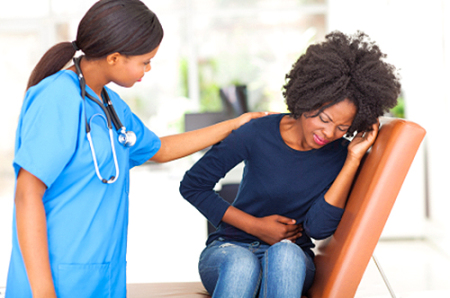After Halloween and Bonfire Night, we have the return of another, much less welcome, winter tradition: the norovirus. Or, as The Times reports, “Tis the season for winter vomiting bug”.
The body responsible for public health in this country, Public Health England, has issued a bulletin reminding everyone experiencing symptoms of norovirus to stay at home and to telephone 111 for advice, if necessary. Symptoms of norovirus typically include forceful vomiting and watery diarrhoea.
It’s vital that people don’t visit GP surgeries, hospitals, schools and care homes if they think they may be infected. For the vast majority of people, the norovirus is self-limiting (it gets better by itself) but vulnerable groups, such as the elderly and people with a pre-existing illness or weakened immune system could be at risk of complications if exposed to the virus.
Should I seek medical advice?
In most cases, medical advice is not required, as the body can usually shake off the virus after one or two days. Advice is usually only required if your body is showing signs of severe dehydration, such as:
- severe thirst
- dry, wrinkled skin
- an inability to urinate
- irritability
- sunken eyes
- a weak pulse
- a rapid heartbeat
- cold hands and feet
- seizures
Even then, it is better to call 111 than to visit your GP or local hospital in person, as this will help to limit the potential spread of infection.
What is norovirus?
Norovirus is the most common stomach bug in the UK, and has a peak season during the winter months (roughly around October/November to March/April). It causes vomiting and diarrhoea, with symptoms lasting around one to two days, though the severity and duration of symptoms can vary between individuals.
Norovirus is a highly contagious virus, meaning that only a few viral particles are required to cause infection. It is passed on by virus particles picked up on the hands being transferred to the mouth (e.g. through touching contaminated surfaces or eating contaminated food). It can also be spread by inhaling small airborne particles of the virus (e.g. if someone nearby has profuse vomiting).
As it is so contagious, it’s frequently the cause of outbreaks in places where people are gathered together, such as schools, childcare centres, care homes and hospital wards.
It is a self-limiting virus, meaning that symptoms will clear up by themselves and no specific treatment is effective, or needed. However, as with any diarrhoea and vomiting bug, dehydration is the main risk, particularly for vulnerable people, such as the young or elderly. Therefore, regular fluids are very important.
What are the main ways to prevent norovirus spreading?
As norovirus is highly contagious, the key ways of stopping the virus spreading centre on:
- effective hand washing
- isolation or exclusion of the infected individual (e.g. from school or work)
- effective cleaning and disinfection of environmental surfaces (e.g. bathrooms and toilets)
Effective hand washing is a key measure. Hands should be washed at all appropriate times, such as before eating and preparing food, and after using the toilet or helping others (e.g. changing nappies). Effective hand washing includes:
- wetting hands under running water
- applying soap and rubbing this in thoroughly, over all hand surfaces; the length of time spent washing your hands is recommended to last as long as it takes to sing the “Happy Birthday” song
- rinsing
- drying hands thoroughly, ideally with disposable paper towels (reusable towels or flannels should not be shared between people)
- using the paper towel to close the tap, so not to re-contaminate hands
Even if gloves are worn (e.g. when cleaning up spillages of vomiting), hands still need to be washed after removing the gloves.
If hand sanitiser/alcohol gel is used instead of hand washing, sufficient gel (e.g. the size of a 10p coin) needs to be applied to all hand surfaces and rubbed in for about 30 seconds. If hands are visibly soiled, they need to be washed with soap and water.
People with diarrhoea and vomiting should be sent home from work or school (or isolated if in a care home, for example) and should not return until 48 hours after symptoms have resolved.
This includes not visiting public places where people are gathered, such as GP surgeries, hospital wards or care homes. Public Health England has highlighted the risk in hospitals.
What does Public Health England say?
Public Health England says there were 18 outbreaks of norovirus in hospitals across England in November 2013, 17 of which led to ward closures. Data for July 2013 to June 2014 indicated that there were 610 reported hospital outbreaks over this one-year period, 94% of which led to ward closures. As Public Health England says, closures are necessary to stop the contagious virus spreading, but are also highly disruptive.
John Harris, an expert in norovirus at Public Health England, advises: “October usually marks the start of the norovirus season and the bulk of cases will occur between now and April next year.
“No two norovirus seasons are the same, and there is no way of predicting how busy a season will be. What we do know is that many people will be affected across the country and they will probably feel very unwell for a couple of days, but will get better.
“For patients already ill in hospital, this virus could cause further health complications, making it vital to prevent introducing the virus into the hospital environment.
“We strongly urge anyone affected to stay at home and to telephone NHS 111 for advice.”










